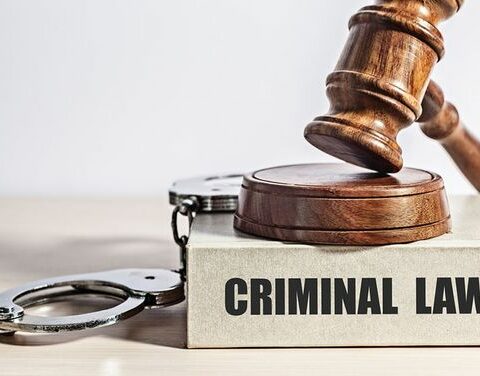PRACTICE OVERVIEW
Corporate fraud refers to deceptive and illegal activities carried out by individuals or entities within a corporation or organization for financial gain or to misrepresent the company’s financial status. Criminal law comes into play when these fraudulent activities involve violations of criminal statutes and regulations. Here’s an overview of the intersection between corporate fraud and criminal law:
Definition of Corporate Fraud: Corporate fraud includes various fraudulent practices such as embezzlement, false financial reporting, insider trading, bribery, money laundering, kickbacks, and more. These activities often involve manipulation of financial records, misrepresentation of financial health, and unethical behavior within a corporation.
Criminal Elements: When corporate fraud involves violations of criminal laws, individuals can face criminal charges. For example, individuals engaging in insider trading can be charged under securities laws, those involved in money laundering can be charged under anti-money laundering statutes, and those engaging in bribery may be charged with corruption offenses.
Criminal Liability: Individuals found guilty of corporate fraud can face various criminal penalties, including fines, probation, restitution, and imprisonment. Organizations themselves may also be held criminally liable for failing to prevent or adequately address fraudulent activities within their ranks.
Prosecution and Investigation: Law enforcement agencies and prosecutors investigate allegations of corporate fraud, gather evidence, and build cases against individuals or entities suspected of committing these crimes. This involves interviewing witnesses, analyzing financial records, and working with regulatory bodies.
Legal Defenses: Defendants facing corporate fraud charges can employ legal defenses, including challenging the evidence presented, asserting their rights were violated during the investigation, or arguing that their actions were lawful and not fraudulent.
Plea Bargaining and Settlements: Prosecutors may offer plea bargains to individuals or organizations facing corporate fraud charges. These agreements often involve reduced charges or penalties in exchange for cooperation, guilty pleas, or restitution payments.
Regulatory Agencies: Regulatory bodies, such as the Securities and Exchange Commission (SEC) and the Department of Justice (DOJ), play a significant role in investigating and prosecuting corporate fraud cases. They can impose civil and criminal penalties, depending on the severity of the fraud.
Prevention and Compliance: To mitigate corporate fraud, companies implement compliance programs, internal controls, and whistleblower mechanisms. These efforts aim to detect and prevent fraudulent activities before they escalate.
Legal Expertise: Corporations and individuals facing allegations of corporate fraud often seek legal counsel experienced in both criminal law and corporate regulations to navigate the legal complexities and protect their rights.
The relationship between corporate fraud and criminal law highlights the importance of ethical business practices, regulatory compliance, and effective enforcement mechanisms to maintain the integrity of financial markets and corporate operations.
Types of Corporate Fraud
Within the domain of e-commerce fraud, various forms of financial and economic crimes can occur. E-commerce fraud refers to illegal practices where fraudsters exploit online shopping platforms and transaction processes…
Learn MoreFinancial and economic crime within the domain of Long and Short firm Fraud refers to a specific form of fraud where fraudulent companies are set up with the purpose of…
Learn MoreWithin the domain of online fraud, various forms of financial and economic crimes can occur. Online fraud refers to illegal practices where fraudsters exploit the internet and digital channels to…
Learn MoreWithin the domain of invoice redirection fraud, various forms of financial and economic crimes can occur. Invoice redirection fraud refers to illegal practices where fraudsters attempt to redirect payments by…
Learn MoreWithin the domain of procurement fraud, various forms of financial and economic crimes can occur. Procurement fraud refers to illegal practices where fraudsters manipulate the procurement process to gain financial…
Learn MoreWithin the domain of Business Email Compromise (BEC) fraud, various forms of financial and economic crimes can occur. BEC fraud refers to illegal practices where fraudsters use email communication to…
Learn MoreWithin the domain of email fraud, various forms of financial and economic crimes can occur. Email fraud refers to illegal practices where fraudsters use email communication to gain financial advantage.…
Learn MoreWithin the domain of phone fraud, various forms of financial and economic crimes can occur. Phone fraud refers to illegal practices where fraudsters exploit telecommunications systems to gain financial advantage.…
Learn MoreWithin the domain of computer software service fraud, various forms of financial and economic crimes can occur. Computer software service fraud refers to illegal practices where fraudulent services related to…
Learn MoreWithin the domain of Private Automatic Branch Exchange (PABX) fraud, various forms of financial and economic crimes can occur. PABX fraud refers to illegal practices aimed at abusing or manipulating…
Learn MoreRELATED EXPERTISES WITHIN THIS PRACTICE AREA
"Fraud risk management" refers to the process within an organization of identifying, assessing, controlling, and preventing potential fraudulent activities. It involves developing and implementing strategies, policies, and measures to prevent…
Learn MoreA "Whistleblowing service" is a mechanism implemented by organizations to provide employees and stakeholders with a safe and confidential way to report suspected irregularities, misconduct, illegal activities, or other issues…
Learn More"Anti-bribery and corruption consulting" refers to the services provided by consultants or consulting firms to assist organizations in developing and implementing strategies, policies, and measures to prevent and combat bribery…
Learn More"Anti-money laundering (AML) consulting" refers to the services provided by consultants or consulting firms to assist organizations, particularly financial institutions, in developing and implementing effective measures, policies, and procedures to…
Learn More"Business intelligence services" refer to the services provided to organizations to assist them in collecting, analyzing, and presenting business information to enhance decision-making. These services involve the use of data…
Learn More"Corporate fraud investigation" refers to the process of examining and analyzing suspected fraudulent activities within a company or organization. These investigations are conducted to determine the extent and nature of…
Learn More"Forensic data analytics" refers to the application of advanced data analysis techniques to large volumes of data to detect, investigate, and prevent fraud, misuse, and other irregularities. This approach utilizes…
Learn More"Computer forensics" refers to the process of collecting, analyzing, and interpreting digital information to identify and present evidence relevant to criminal or civil legal cases. It involves investigating digital devices,…
Learn More"Forensic litigation support and forensic dispute resolution advisory" refers to specialized services provided to support legal proceedings and provide guidance in resolving disputes using forensic techniques and expertise. This involves…
Learn More




